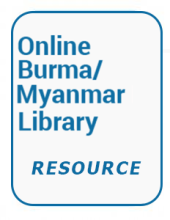Land Library Search
Through our robust search engine, you can search for any item of the over 73,000 highly curated resources in the Land Library.
If you would like to find an overview of what is possible, feel free to peruse the Search Guide.
/ library resources
Showing items 1 through 9 of 93.While Burma’s ethnic states are blessed with a wealth of natural resources and biodiversity, they
have been cursed by the unsustainable extraction and sale of those resources, which has fuelled
This study emerged out of an identified need to document social
processes leading to land insecurity, and those leading to investment
and sustainable use of lands by rural populations. Focusing on the
Delta and Dry Zone, the main paddy producing regions of Myanmar,
... Namati offers this brief in the hope that Myanmar’s national reforms and the implementation of the country’s new National Land Use Policy can grow from the lived experience of ordinary Myanmar citizens.
Paper prepared for presentation at the 2016 WORLD BANK CONFERENCE ON LAND AND POVERTY, The World Bank - Washington DC, March 14-18, 2016
... Myanmar’s forest and timber sector has been central to the country’s economy and society, particularly over the last century. Since the colonial era, timber has been a major export revenue earner to Burma/Myanmar and thus subject to much political debate (Bryant 1996).
Outline of a Pilot Approach towards Cadastral Registration of Customary
Communal Land Tenure in Myanmar....."...The objectives of the study were to identify legal ways using the Farmland Law 2012 and
Documents and analyses on land tenure in Burma/Myanmar.....
"1.Reconcile legality and legitimacy through clear legal recognition of existing
acknowledged rights, whatever their origin (customary or statutory) or nature
(individual or collective, temporary or permanent).
... This piece of community initiated action research reveals a number of lessons we can learn. The authors try to reflect the challenges of and opportunities for community based natural resources management in a seemingly forgotten Karen controlled area of southern Myanmar.
...Like the other resource concessions, land grabbing for large scale agriculture and military purpose in ethnic areas is a military state-building strategy of Myanmar military led-government. Since 1990s, in Myanmar, a military-run dictatorship has adopted its own version of market economy.

